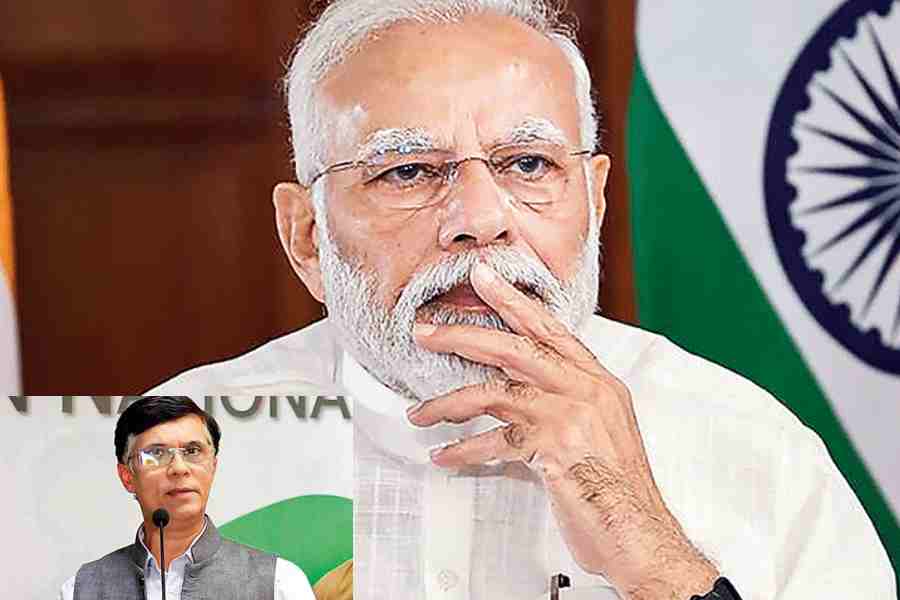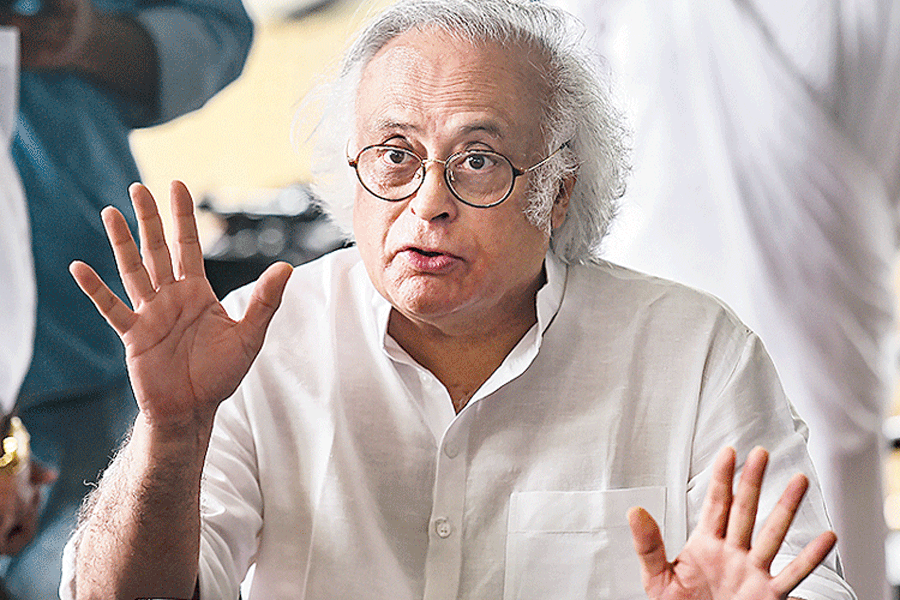The Congress on Friday described the electoral bond scheme as “a lovechild of corruption and crony capitalism”, continuing its campaign to accuse Prime Minister Narendra Modi of a double standard on corruption.
“There is a famous spy film series, James Bond, in which the super agent 007 introduces himself with the line ‘My name is Bond, James Bond’. In our country’s politics, we have an Agent 56.... What is his introduction? ‘My name is Bond, Electoral Bond’,” Congress media department head Pawan Khera told a news conference.
“This Agent 56 secured Rs 5,200 crore for his party through electoral bonds without the country being told where the money came from, who gave it and what they got in return,” Khera added.
The Congress spokesperson said that it was not that “Agent 56 does not like transparency” because he wants to know all about the transactions in the accounts of citizens. “The whole country is dishonest. But you have to blindly believe that I am honest. This is the mantra of Agent 56,” Khera said.
The Congress alleged the Modi government had institutionalised corruption through the opaque electoral bond scheme, which it said kept the country in the dark about any quid pro quo between political parties and donors.
It argued that the scheme had subverted democracy by giving a financial advantage to the BJP, thus denying others a level playing field.
“More than 52 per cent of the BJP’s political donations, worth Rs 5,271.97 crore, came from electoral bonds as against Rs 1,783.93 crore received by all other national political parties between 2017-18 and 2021-22, according to a new report by the Association for Democratic Reforms,” Khera told the news conference.
“This effectively implies that the controversial, corrupt and contrived electoral bond scheme is a money-whitening scheme – which converts black money to white.”
Khera reaffirmed the Congress’s resolve to scrap the scheme if it came to power. “It is a perfect way of legitimate, state-sponsored rent-seeking and corruption,” he said.
“The Modi government is interested in looking into the accounts of ordinary citizens — whose daughter got how much money, whose son received transfers from where — but doesn’t want the voters to know which political party got money from which corporate (entity). This is the benchmark of transparency for the Prime Minister.”
Khera added: “On January 7, 2017, two months after the disastrous demonetisation of Rs 500 and Rs 1,000 currency notes, Modi, addressing the national executive meeting of the BJP in Delhi, said there was a need to make political funding more transparent and that his party was in favour of electoral reforms.
“Following which, his government introduced (facilities under which) any company can donate any amount of money to any political party, and any individual, group of people or company can donate money anonymously to any party, through the electoral bonds scheme.”
Khera recalled how the scheme, which faced stiff resistance from Opposition parties, was passed as a money bill, primarily to escape possible blockade in the Rajya Sabha.
“The RBI also opposed the scheme by enlisting four compelling reasons. Apart from the processes, the RBI raised apprehensions regarding the possible misuse of these bearer bonds for purposes such as money laundering, as well as the potential to undermine the authority of the banknotes issued by the central bank,” Khera said.
But the Modi government, instead of presenting counter-arguments to the concerns expressed relating to Section 31 of the RBI Act, 1934, merely said the RBI had not understood the proposed mechanism and that the advice had come too late, with the Finance Bill already printed, Khera said.
The government, he alleged, hastily brought two last-minute amendments that violated citizens’ right to information about political parties and their candidates, thus infringing on their right to make informed voting choices. “One such amendment was to Section 29C of the Representation of the People Act, 1951, whereby political parties were exempted from sharing details of contributions received through electoral bonds with the Election Commission (EC),” Khera said.
“The EC described this as a retrograde step as far as the transparency of donations was concerned and called for its withdrawal. Another amendment was to Section 182 of the Companies Act, 2013, which exempted companies from declaring their contributions to political parties. It (the government) also removed the cap on corporate donations under which a company could not contribute more than 7.5 per cent of its net profits for the previous three years. The EC has opined that this opens up the possibility of shell companies being set up for the sole purpose of making donations to political parties.”












